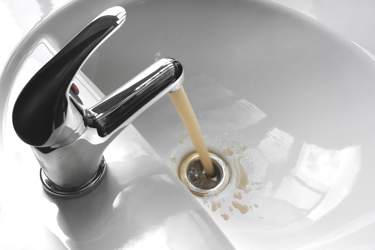Florida Residents "Outraged" As Sewage Enters Drinking Water Following Contractor Error


A drinking water and wastewater worst-case scenario has left consumers furious in a Florida community, demonstrating how important maintaining these services is and just how close to catastrophe consumers really are.
“Residents in Gulf Breeze’s Soundside Drive neighborhood are livid after learning a private contractor crossed a residential sewage line with a potable water line, causing sewage-contaminated water to flow from their faucets for an undetermined amount of time,” the Pensacola News Journal reported. “‘I don’t understand how it happened because the pipes are colored and they’re colored for different things,’ [resident Betsy] Echols said. ‘And how they could mix the colors, that scares me. I mean even a novice knows there are colors for different things.’”
Affected residents became suspicious when their appliances began acting erratically, but the exact date of the cross connection was not immediately clear. The Florida Department of Environmental Protection (FDEP) received complaints from residents on October 8, but did not dispatch crews to dig up the affected main and discover the cross connection until October 18. The city disconnected the lines and began water sampling that same day.
The local water system eventually issued a boil water notice that applied to 500 residential connections and two commercial ones.
“FDEP will conduct hearings with both the city of Gulf Breeze, which owns the sewage line, and the Midway Water System in Santa Rosa County, which runs the water line, to determine liability and find the exact origin,” per the News Journal.
As water sampling tests continued, bottled water was provided to residents who were discouraged from utilizing their tap water until it could be confirmed as safe.
“Bottled water will continue to be available to affected residents until testing results confirm the water is safe to drink,” WEAR-TV reported. “Residents should continue to use an alternative water source until testing can be done in their homes to confirm the water meets all bacteriological standards.”
As the water system worked to ensure that local consumers’ drinking water was up to health standards, many of those consumers were doubtlessly having difficulty maintaining faith in that system.
For more information, visit Consumer Outreach Solutions Center.
